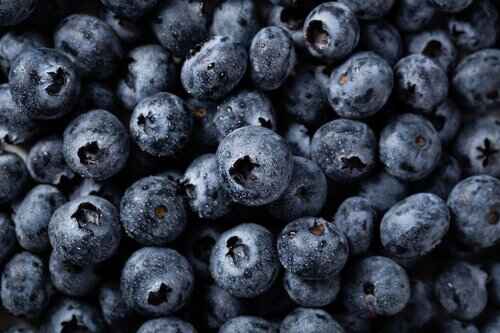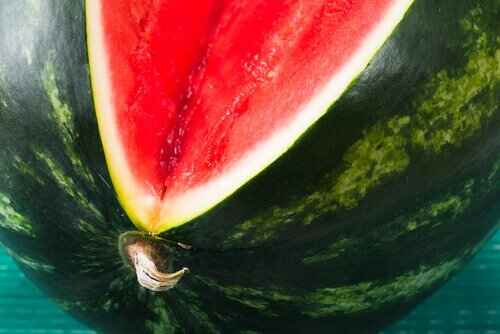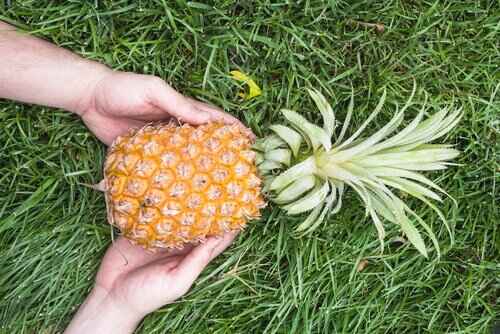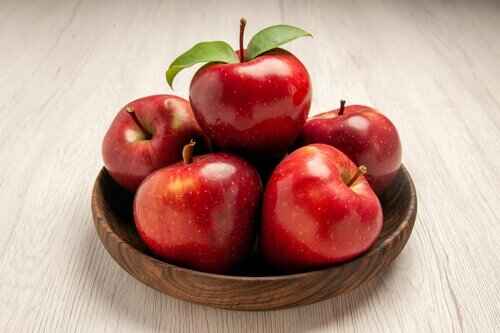Do you know anyone who has any kidney disease? Click on this button and book an appointment with 100% herbal treatment with no side effects.

Mar 24 , 2024
Are you looking to maintain your kidney health naturally?
One of the key factors in kidney health management is creatinine levels.
While medical treatments and dietary adjustments play crucial roles, incorporating fruits into your diet can also be beneficial.
In this comprehensive overview, we'll delve into the question: which fruit is good for kidney creatinine?
Let's explore the fruits that can support kidney health and help manage creatinine levels effectively.
Here are some fruits that are good for kidney creatinine.

Cranberries have long been popular for their potential health benefits, particularly in kidney health.
They are rich in phytonutrients and antioxidants, including flavonoids and polyphenols, and they possess antimicrobial and anti-inflammatory properties.
These properties of cranberries support urinary tract health by preventing the spread of certain bacteria.
It is also considered one of the best fruits to reduce creatinine levels naturally.
Rich in bioactive elements and kidney-boosting properties.
Research suggests that cranberries benefit kidney function by reducing the incidence of UTIs they help to prevent secondary kidney complications that can occur from recurrent urinary tract infections.
Cranberries help to prevent UTIs in children, adult females and people at risk of developing UTIs due to radiation treatment or surgeries.
But it does not work for people with neurogenic bladder, a condition caused by spinal cord injury.
Cranberries do not prevent UTIs in pregnant and elderly people.

Blueberries contain antioxidant vitamins and minerals that provide many health benefits.
For example, blueberries are rich in minerals like vitamin K which may promote heart health.
The vitamins are also crucial for bone health and blood clotting.
Blueberries contain antioxidants that protect against free radicals and prevent cell damage.
Cholesterol is found in our blood.
Your body requires cholesterol to build healthy cells but a high cholesterol level increases the risk of heart disease.
Blueberries help to prevent high cholesterol levels.
Eating Blueberries daily can help reduce hypertension.
Plant compounds called anthocyanins provide these benefits.
For diabetic patients, blueberries may help you manage your blood sugar levels.
Research has shown that Blueberry consumption regularly helps to improve insulin sensitivity for type 2 diabetic patients.

Strawberries contain polyphenols, which improve insulin sensitivity in adults.
They are low in sugar and they may also help you metabolise other forms of glucose.
Strawberries have anti-inflammatory properties which help prevent skin damage.
They also help to reduce knee pain and swelling and prevent osteoarthritis.
Strawberries may lower fats in the blood called triglycerides and lower LDL and total cholesterol.
LDL is bad cholesterol. Strawberries also help in lowering your blood pressure and protecting your heart health and may even lower creatinine levels.
Strawberries are also used as prebiotics.
It provides good bacteria to your gut when you eat them.
A study has found that a healthy gut microbiome helps the body to better use antioxidants, such as anthocyanin.
Antioxidants found in strawberries help to reduce the growth of cancer cells.

Watermelon contains lycopene which is important for cardiovascular health and it is an important factor in enhancing bone health.
It also has been correlated with enhanced cardiovascular function because it can improve blood flow by a relaxation of blood pressure (vasodilation).
Watermelon is also rich in potassium which aids in retaining calcium in your body as a result you get stronger bones and joints.
The high concentration of lycopene helps to reduce information and oxidative stress.
Watermelon contains an essential amino acid called citrulline, which helps to reduce the accumulation of fat in our bodies.
Citrulline through a series of steps helps to block the activity of tissue-nonspecific alkaline phosphatase (TNAP), making our fat cells create less fat.
Watermelon is a popular natural diuretic that helps increase urine production and it also does not stain kidneys like caffeine and alcohol.
It also helps the liver process waste from protein digestion (ammonia).
Watermelon also eases the strain on the Kidneys while also helping to get rid of excess fluids.
Pineapple

Eating pineapples regularly can help you lower hypertension as this fruit is rich in potassium and a lower amount of sodium can help you manage blood pressure and make your body feel more relaxed.
Pineapples are also rich in Bromelain and help you reduce the risk of blood clots.
It is also rich in antioxidants and essential nutrients that have the ability to protect your body from diseases, such as chronic inflammation and weak immune system.
Pineapples are rich in manganese that has the ability to strengthen your bones.
Manganese helps you maintain strong bone strength and when combined with copper, calcium, and zinc, these substances make it super healthy.
Bromelain may also help you improve renal function by reducing inflammation.
It has a rich source of vitamin C and title fibre that helps in good digestion.
Pineapple also helps you prevent macular degeneration, a disease that impacts the eyes as you get older.
It contains anti-inflammatory properties that help ease joint pain and may prevent Arthritis.

Eating apples regularly may help you reduce the risk of type diabetes, due to the polyphenol quercetin found in apples.
A Study suggested that eating an apple a day helps you reduce the risk of heart disease and risk factors such as hypertension because they contain soluble fibre and polyphenols.
Apple has been used as a prebiotic for a long time because it contains pectin, a type of fibre that promotes the growth of good bacteria and is good for your gut microbiome.
They also contain antioxidants which are beneficial against certain types of cancer including breast cancer, lung cancer, and digestive tract cancer.
Apples also help you reduce airway inflammation related to allergic asthma.
Several fruits offer potential benefits for kidney health and may aid in managing creatinine levels naturally.
Cranberries are known for their ability to support urinary tract health and reduce the risk of urinary tract infections (UTIs), thus indirectly benefiting kidney function.
Blueberries, strawberries, and apples are rich in antioxidants and polyphenols, which help protect against oxidative stress and inflammation, contributing to overall kidney health.
Watermelon acts as a natural diuretic, promoting urine production and aiding in waste elimination from the body.
Pineapple contains bromelain, known for its anti-inflammatory properties, which may improve renal function.
Incorporating these fruits into a balanced diet, alongside other kidney-friendly foods, can support kidney health and contribute to managing creatinine levels.